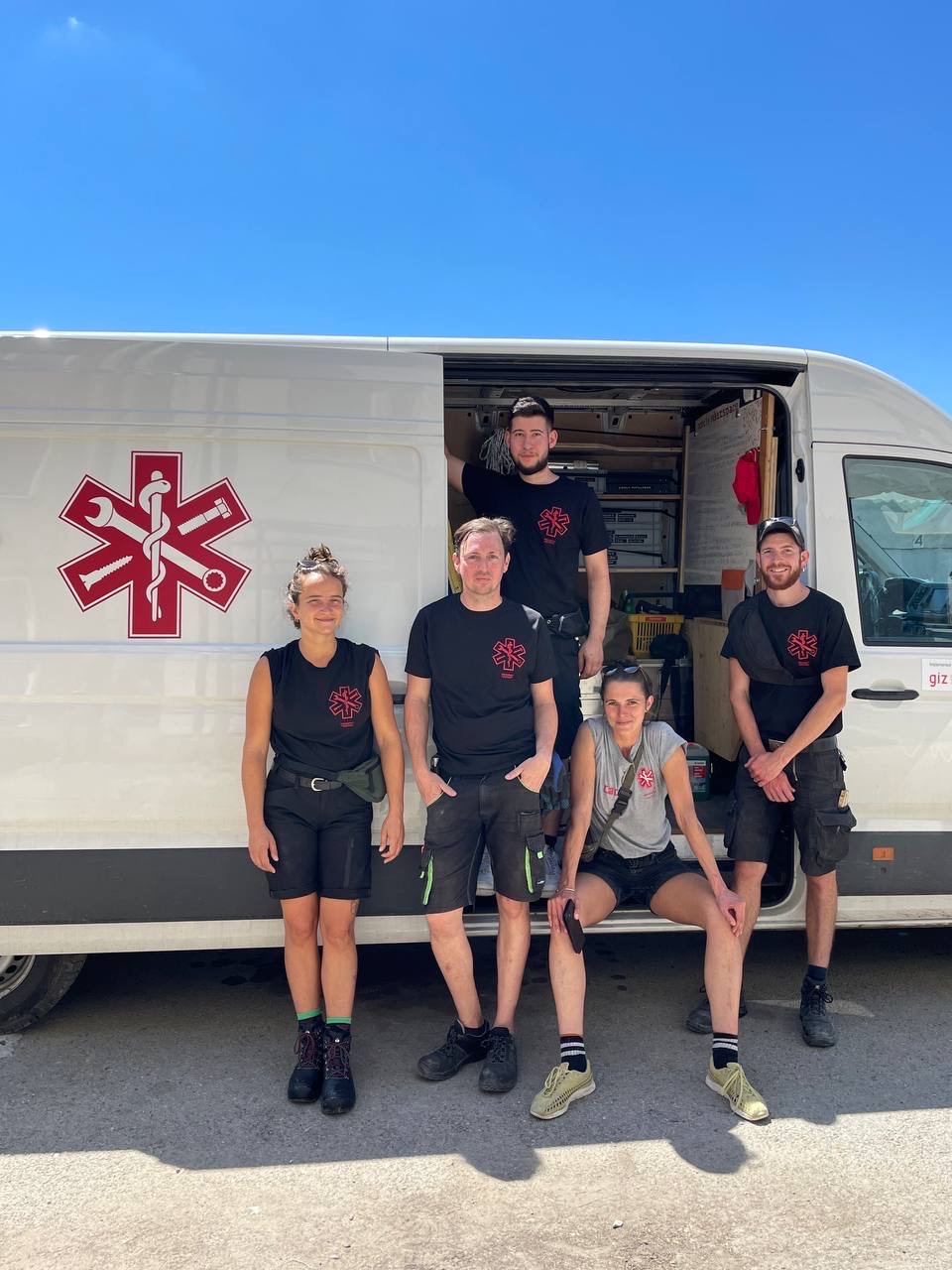Crisis Response Makerspace

A makerspace for humanitarian aid
Makerspace – what is it actually?
A makerspace is a place that adopts the co-working principle and takes it from the office into the workshop. Makerspaces are open workshops where people from different professional backgrounds come together to share ideas and knowledge and to work together on projects. Makerspaces live the do-it-yourself idea and are characterized by the fact that they provide the “makers” with a variety of tools, machines and technology for the realization of their own projects and support the handling of these. This enables access to modern production technology and promotes cooperation between a wide range of people.
The CADUS Crisis Response Makerspace utilizes the makerspace concept and takes it a step further. As CADUS is committed to humanitarian aid, our Makerspace is also committed to this idea and supports the realization of our emergency aid projects.
Classic craftsmanship and modern technology come together in our premises directly at the Spree. There are areas for wood and metal processing, a corner for electronics work and the digital component is covered by a CNC milling machine, 3D printing and laser cutting. The Makerspace also offers event technology for conferences, teaching events or simply social get-togethers.
Current projects Crisis Response Makerspace

Mobile makerspace for Ukraine
Makerspace makes makerspace: we built a mobile makerspace based on a van and sent it on its way to Ukraine in May 2022. Together with several Ukrainian and German partner organizations, we have been involved in reconstruction in Ukraine – in the midst of war. We are currently working on sending the rolling workshop back into action.

Mobile Intensive Care Unit – MICU
We built a mobile intensive care unit out of an old coach and put it into operation in Ukraine. The MICU makes it possible to transport several patients in critical condition, even if only a few of the necessary medics and drivers are available in a crisis situation.

Mobile Primary Health Care – PHC
We have converted an old four-wheel drive truck into a clinic on wheels. With this, a Ukrainian organization is now treating people in the east of the war zone. Thanks to the solar system and sophisticated power planning on board, the vehicle is self-sufficient during patient treatment.
Completed projects Crisis Response Makerspace

Shower truck for the Balkan route
For the WASH sector (water, sanitation and hygiene), we developed the shower truck and handed it over to an organization that uses it to care for refugees at Europe’s external borders.

Mobile clinic for Bosnia
In the winter of 2018, another conversion took place in the Makerspace: in record time, many helping hands transformed a van and a pickup truck into a mobile clinic and sent them on their way to Bosnia-Herzegovina. In Sarajevo, we used it to provide medical care to refugees for four months.

Mobile hospital for Northeast-Syria and Iraq
CADUS became involved in Northeast-Syria early on, encountering a dynamic war situation with rapidly changing front lines. Based on this experience, we planned and built a mobile hospital with the help of which we were able to save many lives in Mosul/Iraq in 2017. We finally handed over the mobile hospital to our partner organization in Northeast-Syria.
